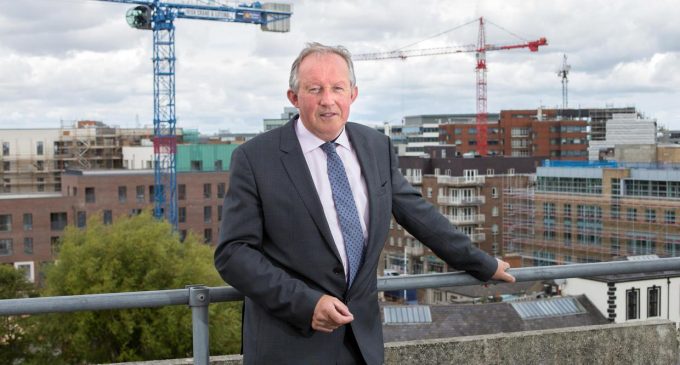‘No justification’ for building workers to remain on PUP, says industry chief

Construction industry head, Tom Parlon, has criticised building workers still claiming the pandemic unemployment payment (PUP), saying there is no justification for being out of work.
Mr Parlon, director general of the Construction Industry Federation (CIF), said the Government had a “laissez-faire” attitude in failing to insist claimants prove their need.
“There is no justification for having construction workers, or hospitality workers, on the PUP,” he said.
“Everywhere I go I hear employers saying ‘we haven’t got the people’.”
He added: “I have no doubt that there is a big element of construction workers that are not in the country that are claiming the PUP.”
He said others were doing home renovation jobs for cash while claiming the PUP.
“Revenue should be on to them. If they’re able to send out the cheque every week, they’re able to write to them to confirm they are in the country and not able to work. That might frighten them.”
More than 106,000 people received PUP payments this past week but the number has been falling each week.
Mr Parlon was speaking ahead of today’s publication of the CIF’s list of pre-budget demands, top of which action from Government to deliver the National Development Plan’s targets for housing and infrastructure for transport, energy, education and other public services.
“We have all this money allocated to it but the challenge is getting it spent,” he said.
“By the end of August this year, we’d only spent 38pc of this year’s allocation. Now the Government is about to announce a revised plan with €163bn to be spent over the next ten years. It has to be moved along.”
CIF calculates that every €1bn spent on construction generates €1.85bn in activity and 1,200 jobs.
The body wants Irish Water’s funding to be doubled to €2bn a year to speed up the provision of water and wastewater infrastructure on development land so building can begin.
Its submission says, however, that money alone won’t solve the infrastructure backlog. It is calling for digitisation and reform of the planning system to provide for faster decision-making times, with increased staffing in local authority planning officers and An Bord Pleanála to ensure the timelines are met.
It also wants a review of the standard fixed price contract used for schools and other public building projects which does not allow for inflation.
Around a dozen schools are having difficulty getting firms that successfully tendered for works to accept the jobs because prices have risen since they entered their bid.
“In the private sector, there is room for variation in contracts. The quantity surveyors from both sides get together and work out what prices have risen and make an agreement,” said Mr Parlon.
“It works because you want the job done and I want the contract and everybody’s happy. It doesn’t work that way in the public sector.”
He said inflation in materials would add €15,000 to the cost of an average new home this year but the biggest issue with house prices was VAT which he wants reviewed.
“VAT on new homes is 13.5pc. It’s zero in Northern Ireland,” he said.
CIF is also looking for extension of the Help to Buy scheme to at least 2025 and full roll-out of the shared equity scheme to assist house buyers.
It also wants an easing of restrictions on work permits for non-EU workers, a centre of excellence for new construction technology and the establishment of a National Infrastructure Commission to monitor infrastructure gaps and drive action to fill them.
Source: Independent.ie







